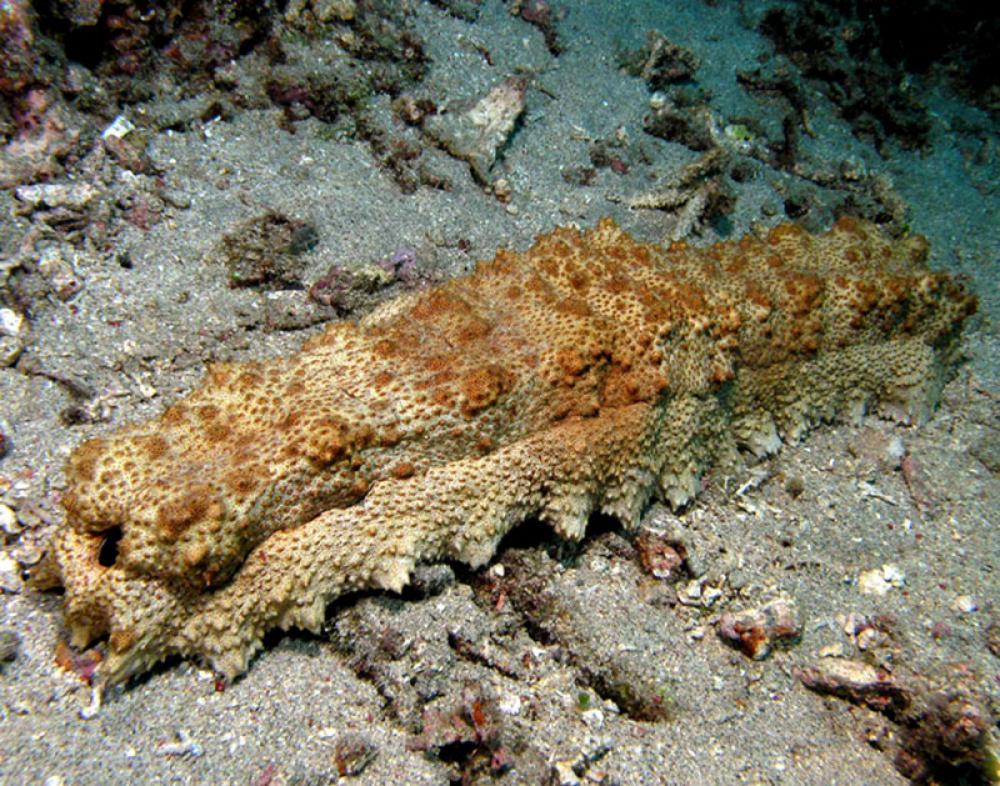Just Earth News | @justearthnews | 21 Jan 2023, 08:03 am Print

Representational image by Nhobgood via Wikimedia Commons
Colombo: Sri Lanka-based Centre for Strategic Studies- Trincomalee (CSST) reported that the sea cucumber fishing industry is slowly disappearing in the country.
China is one of the main consumers of Sri Lanka's sea cucumbers.
However, those who rely on fishing for their livelihood are in a very bad situation.
In Kiranchi village, Kilinochchi, the traditional fishermen’s protest against sea cucumber farms has crossed 100 days. In the northern peninsula, the farming method of caging a specific area in the sea and harvesting sea cucumbers is an unfamiliar experience, according to CSST, reports ANI.
Sea cucumber has been a part of the seafood business for over 50 years.
Annalingam Annarasa, President of Jaffna District Fishermen’s Co-operative Society, told the Indian News Agency, " Sukanth International Pvt Ltd has been in the business for three generations, we have never opposed this. However, after 2019, we oppose the mushrooming sea cucumber farm projects in Northern Province."
“These farms will prevent fish from coming to shore and fish reproduction. Besides, it is not our primary marine industry in the Jaffna peninsula. Sea cucumber harvest is for export only. They are trying to destroy the traditional fishing industry, which has been our livelihood for generations,” Annarasa explained.
A.M. Riaz Ahmed, a senior lecturer in the Department of Biological Sciences at the Southeastern University of Sri Lanka, as quoted by CSST, told ANI: “The fears of the fishermen are justified. If large-scale seaweed harvesting is carried out alone, it will affect the food chain of marine resources, and sea cucumber eggs and young larvae will become prey for fish and other marine animals.”
Meanwhile, China is investing in sea cucumber farms in Sri Lanka, that have the capability of boosting exercise performance and have anti-fatigue effects. China wants to facilitate the export of the species from Sri Lanka.
The Chinese joint venture company, Gui Lan (Pvt) Ltd had already established an artificial breeding production facility (hatchery) in Jaffna’s coastal village of Ariyalai as far back as 2016 to provide juvenile cucumber stock to support further production, reported Geo-politik as quoted by ANI.
While the climate in Sri Lanka is quite suitable for sea cucumber production, there can be catastrophic consequences for the local marine ecology if large-scale production is undertaken, the news agency reported.
- United Kingdom launches eVisa for Indian visitors starting today — Here’s what travellers need to know
- Abandoned at birth, Punch the macaque finds global love as crowds flock to Tokyo zoo
- YouTube Premium Lite just got a massive boost — Know all details
- Trump claims he stopped 35 million deaths by stopping India-Pakistan war
- Entrepreneur decides to shut down 16-year old eatery in London, cites harassment and Pakistani attacks





-1763561110.jpg)
